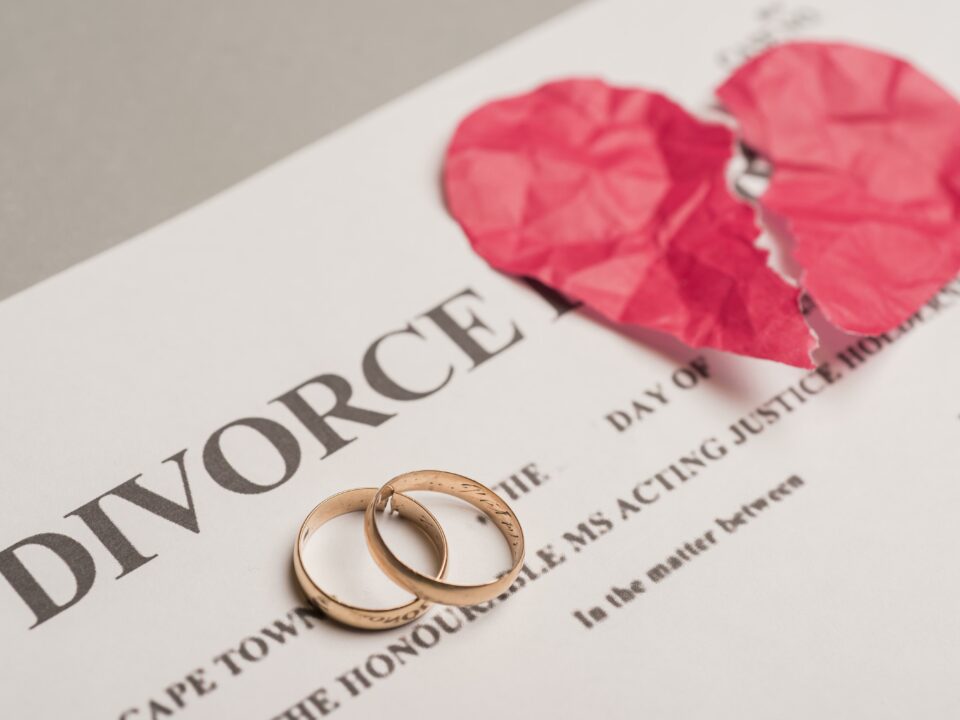Navigating the Divorce Process in the UK: A Comprehensive Guide for 2025

Divorce can be one of life’s most challenging experiences, but understanding the legal process can make it less daunting. In this guide, we’ll walk you through the divorce process in the UK, breaking down the stages of divorce, explaining the timeline, and providing clarity on how to navigate the legal aspects of ending a marriage in 2025.
Summary - Legal Stages of Divorce in the UK
- Application Stage: Initiating the process.
- Acknowledgment Stage: Confirming receipt and agreement.
- Reflection Period: A 20-week period for both parties to reflect and prepare.
- Conditional Order Stage: Obtaining court approval for the divorce.
- Final Order Stage: Legally ending the marriage.
What Is the Divorce Process in the UK?
The divorce process in the UK involves several key stages, from filing an application to finalising the divorce with a decree absolute. Knowing these steps is essential to ensure a smoother experience.Divorce law in the UK operates under a no-fault system, meaning couples can separate without attributing blame. The key criterion is proving that the marriage has irretrievably broken down. This modernised approach aims to reduce conflict and simplify proceedings.

The 5 Stages of Divorce in the UK
Going through a divorce can be a complex and challenging process. In the UK, the stages of divorce typically follow a structured five-step process. Understanding these key stages can help individuals navigate the divorce journey more effectively.
Navigating a divorce in the UK involves the following steps:
Understanding these five key steps can help individuals in the UK navigate the divorce process with greater clarity and preparedness.
Alongside the divorce process, spouses need to agree or apply to the court for a financial remedy order to sever financial ties.
- Filing the Divorce Application: The process begins when one or both spouses submit a divorce application to the court. This can now be done online or by post, making it more accessible. The application should include the grounds for divorce, which must demonstrate the irretrievable breakdown of the marriage. A court fee of £593 is required when submitting the application.
- Acknowledgment of Service:
- For sole applications: Once the application is submitted, the court sends a copy to the other spouse (the respondent). The respondent must acknowledge receipt within 14 days and indicate whether they agree to the divorce or intend to dispute it.
- For joint applications: Both parties receive confirmation of the application’s issuance.
- Mandatory 20-Week Reflection Period: After the court issues the application, there is a mandatory 20-week reflection period. This time allows both parties to consider their decision and make necessary arrangements regarding finances and children. This stage ensures that the parties are prepared to proceed with the divorce.
- Applying for a Conditional Order (formerly Decree Nisi): Once the reflection period is over, the applicant(s) can apply for a conditional order. This step involves the court reviewing the case and confirming there is no reason the marriage cannot be dissolved.
- Final Order (formerly Decree Absolute): After a minimum of six weeks and one day (43 days) from the conditional order, the applicant(s) can apply for the final order. This legally ends the marriage and allows both parties to move forward.
Understanding these five key steps can help individuals in the UK navigate the divorce process with greater clarity and preparedness.
Alongside the divorce process, spouses need to agree or apply to the court for a financial remedy order to sever financial ties.
Divorce Timeline in the UK
The timeline for divorce varies depending on the complexity of the case and the parties' cooperation. On average, the process takes 6 to 12 months from start to finish. Cases involving disputes over finances or children may take longer.Considerations for Child Arrangements
When navigating divorce in the UK, arrangements for children need to be considered. The child's welfare and best interests will be the court’s top priority. If possible, parties should endeavour to agree living and contact arrangements for the children of the family where it is safe to do so.
Factors like the child's relationship with each parent, living arrangements, and the ability to provide for the child's needs are all considered. If arrangements cannot be agreed between the parties and mediation has been attempted, an application to the court may be necessary. The court will aim to ensure the child maintains a meaningful relationship with both parents where possible.
Parents can apply for their child to live with them solely, live with both parents or live with one parent and spend time (including overnight stays) with the other.
The divorce process can be complex when children are involved. Seeking legal advice is recommended to understand the options and work towards the best outcome for the family.
Parents can apply for their child to live with them solely, live with both parents or live with one parent and spend time (including overnight stays) with the other.
The divorce process can be complex when children are involved. Seeking legal advice is recommended to understand the options and work towards the best outcome for the family.
How Finances Are Handled During Divorce
The legal end of a marriage does not automatically resolve financial matters. These are typically dealt with separately through consent orders or court proceedings if needed. Mediation is often recommended as a first step to reach agreements amicably.Couples must disclose their finances fully and transparently. Consent orders, which outline the division of assets, are legally binding once approved by a court.
Tips for Navigating Divorce
- Stay Organised: Keep all documents and correspondence related to the divorce process.
- Prioritise Communication: Open dialogue with your spouse can prevent unnecessary delays.
- Seek Support: Emotional support from friends, family, or professionals can make the process less overwhelming.
- Be Proactive: Address financial and child arrangements early to avoid delays in finalizing the divorce.
Taking the Next Steps in the UK Divorce Process
As you reach the end of your divorce proceedings in the UK, it's important to understand the final steps and ensure a smooth transition.Once the court has granted your Final Order, officially finalising the divorce, there are a few key next steps to consider. Updating your legal and financial documents, such as your will, pension, and insurance policies, is crucial to reflect your new marital status.
Additionally, you may need to inform various organisations, from your employer to government agencies, about your change in circumstances. Seeking support during this transitional period, whether from family, friends, or professional counselling, may also be beneficial in managing the emotional impact of the divorce.
Remember, the conclusion of your divorce marks the start of a new chapter. By understanding the necessary steps and seeking guidance when needed, you can navigate this process with confidence and begin to move forward.
Final Thoughts on the Process of Getting a Divorce in 2025
While the divorce process in the UK can be complex, understanding its stages and requirements is the first step to a smoother transition. By following the steps outlined above and seeking professional advice when needed, you can navigate the divorce process with greater confidence. If you’re considering divorce, contact our experienced family law team for personalised guidance.FAQs on the Divorce Process
1What are the stages of a divorce in the UK?
The stages of a divorce in the UK are:
1. Filing the Divorce Application
2. Serving the Divorce Application
3. Cooling-Off Period
4. Conditional Order
5. Final Order
Alongside the above process, spouses should endeavour to resolve issues surrounding child arrangements and financial remedies.
2How long does it take to get divorced in the UK?
The divorce process in the UK typically takes between six months to a year.
3What happens financially when you get divorced?
Financial matters are dealt with separately from the divorce application. Both parties must disclose their financial assets and attempt to negotiate a settlement as to how the assets and liabilities should be divided. If an agreement cannot be reached, the court will decide on the fair division of assets and financial matters. This may include dividing property, pensions, savings, business interests and investments.
4What is the average cost of divorce in the UK?
The average cost of a divorce in the UK can vary widely but typically ranges from £500 to £2,000 for a straightforward, uncontested divorce. Costs in relation to financial remedy matters or child arrangement matters vary vastly from case to case as the costs will be heavily dependent on the circumstances of the case. Additional legal fees may apply if you hire a solicitor.
5What are the grounds for divorce in the UK?
The sole ground for divorce is the irretrievable breakdown of the marriage. You do not need to prove any factors or reasons for the breakdown of the marriage.
6Can I start divorce proceedings without my spouse’s consent?
Yes, a sole application is possible, but cooperation can streamline the process.
7What happens if we disagree on finances or children?
Disputes over finances or child arrangements may require mediation or court intervention, which can extend the timeline.
8Is it possible to finalise a divorce without going to court?
Yes, in many cases, couples can complete the process online or via written agreements without attending court hearings.


